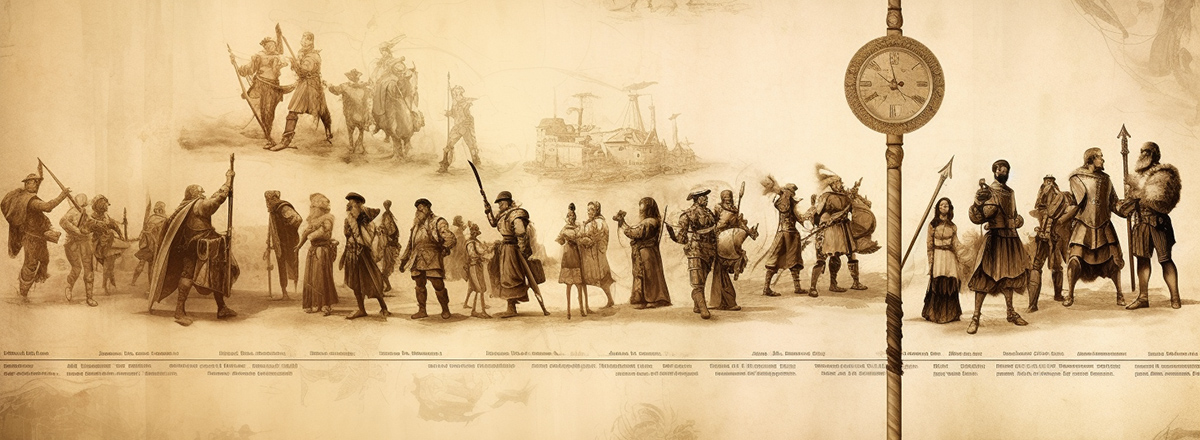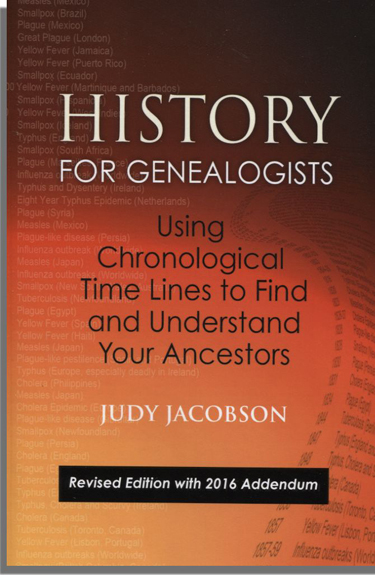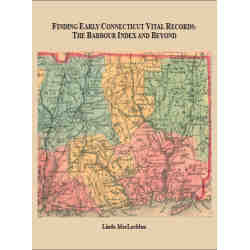
Why is history beneficial to genealogists? For one thing, history can help you understand the challenges and context in which your ancestors lived and possibly thrived. Just as important, history offers clues about elusive ancestors. Knowing that a smallpox epidemic occurred during the 1840s may explain why some youngster ancestors do not appear in the 1850 census. The Revolution of 1848 in Europe might explain why an ancestor came to Ohio and where in Switzerland he might have come from. The Dust Bowl of the 1920s and 1930s could have forced your 2X Great-grandfather to relocate to California, and knowing that might help you find him/her in the U.S. census for one of the Great Plains States.
You may not want to read a narrative history about one of the aforementioned events, but with Judy Jacobson’s History for Genealogists, you don’t have to. As the subtitle indicates, this is a book about “Using Chronological Time Lines to Find and Understand Your Ancestors.” And time lines abound in History for Genealogists. You’ll find timelines about wars, politics, disease, economic history, natural disasters, coming to America, social history, missing persons, all 50 U.S. states, most countries of the world, and, in the 2016 revised edition, fashion and leisure, and the tumultuous era of the Great Depression and World War II.
Consider the time line for Oklahoma. It wasn’t admitted to the Union until 1907, but its first newspaper was founded in 1844. Nearly two million acres of the Oklahoma Territory was opened for settlement by the U.S. government in 1889. The infamous Tulsa race riot of 1921 may have taken up to 300 lives. Any one of the events in the Oklahoma time line (see below) represents a potential clue for the genealogist. Not sure? Check out the full Oklahoma time line below.





